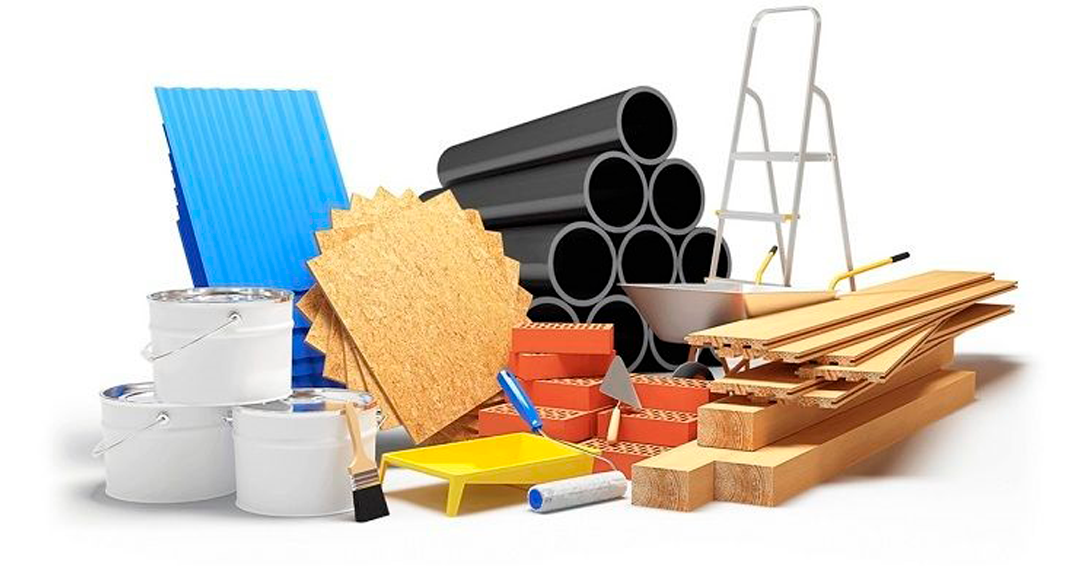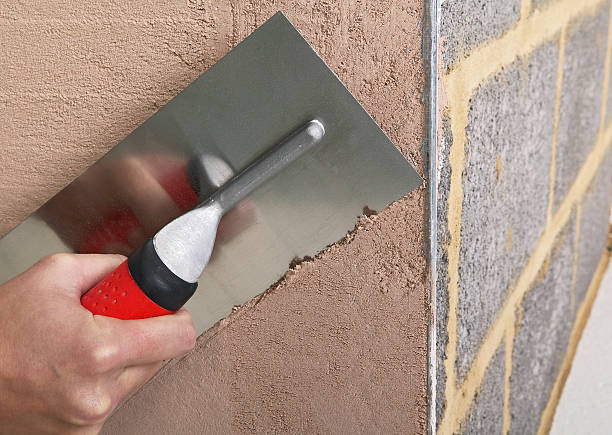Revolutionizing Construction: Construction Material Suppliers
Table of Contents:
- Introduction
- The Importance of High-Quality Construction Materials
- Factors to Consider When Choosing Construction Material Suppliers
- Conclusion
Introduction:

The construction industry is constantly evolving, with new technologies and materials reshaping the way we build. High-quality construction materials play a crucial role in ensuring the durability, safety, and sustainability of structures. In this blog, we will explore the top 5 construction material suppliers that are leading the industry with their innovative products and services.
The success of any construction project relies heavily on the quality of the materials used. From residential buildings to commercial complexes and infrastructure projects, the choice of construction materials can significantly impact the performance and longevity of structures. Builders and contractors need reliable suppliers who can provide them with materials that meet the highest standards of quality and performance.
In recent years, the construction industry has witnessed a surge in new and advanced materials that offer enhanced strength, durability, energy efficiency, and environmental sustainability. These innovative materials are transforming the way we design and construct buildings, paving the way for more sustainable and resilient structures.
With an array of construction material suppliers available in the market, it can be challenging to identify the best options. This blog aims to shed light on the top 5 suppliers that are at the forefront of the industry. These suppliers have established a reputation for excellence, delivering products and services that meet the evolving needs of the construction sector.
By exploring the offerings of these top suppliers, contractors, architects, and project managers can gain insights into the latest advancements in construction materials. From eco-friendly options to cutting-edge technologies, these suppliers are driving innovation and pushing the boundaries of what is possible in the construction industry.
Whether you are embarking on a small residential project or a large-scale commercial development, selecting the right construction material supplier is crucial for success. Through this blog, we will delve into the top 5 suppliers and showcase their unique contributions to the construction industry. Join us as we embark on a journey to discover the construction material suppliers that are revolutionizing the way we build.
The Importance of High-Quality Construction Materials
When it comes to construction projects, the quality of materials used is of utmost importance. High-quality construction materials play a critical role in ensuring the durability, safety, and overall performance of structures. Here are some key reasons why using high-quality construction materials is crucial:
Structural Integrity: Quality materials are essential for maintaining the structural integrity of buildings and infrastructure. They provide the necessary strength and stability to withstand various environmental factors such as wind, seismic activity, and heavy loads. Inferior materials can compromise the structural integrity, leading to safety hazards and costly repairs in the long run.
Durability and Longevity: High-quality materials have superior resistance to wear, corrosion, and degradation over time. They can withstand the test of time and minimize the need for frequent repairs or replacements. Using durable materials ensures that the constructed buildings and structures have a longer lifespan, reducing maintenance costs and increasing their value.
Safety and Security: Construction materials of inferior quality may fail under stress or exhibit unpredictable behaviors during emergencies. High-quality materials are manufactured and tested to meet strict safety standards, ensuring that they perform reliably in critical situations. They contribute to the overall safety and security of occupants, protecting them from potential hazards or accidents.
Energy Efficiency: Advanced construction materials can significantly enhance the energy efficiency of buildings. Energy-efficient materials, such as insulation, reflective roofing, and high-performance windows, help regulate temperature, reduce energy consumption, and lower utility costs. By utilizing high-quality materials, construction projects can contribute to environmental sustainability and promote energy conservation.
Environmental Sustainability: The construction industry has a significant impact on the environment, including resource consumption and waste generation. High-quality construction materials often incorporate eco-friendly practices and technologies. They may use recycled or renewable materials, minimize carbon emissions, and contribute to green building certifications. By opting for sustainable materials, construction projects can reduce their carbon footprint and promote a more environmentally conscious approach.
Compliance with Regulations and Standards: Construction materials that meet industry regulations and standards ensure compliance with building codes and legal requirements. High-quality materials undergo rigorous testing and certification processes to ensure they meet safety, performance, and environmental standards. By using compliant materials, construction projects avoid potential legal issues and ensure that their structures meet the necessary regulations.
In summary, high-quality construction materials are essential for achieving durable, safe, and sustainable structures. They contribute to the structural integrity, longevity, and energy efficiency of buildings while ensuring compliance with regulations and standards. By investing in quality materials, construction projects can mitigate risks, reduce long-term costs, and deliver successful outcomes.
Factors to Consider When Choosing Construction Material Suppliers
Selecting the right construction material supplier is a critical decision that can greatly impact the success of a project. Here are some important factors to consider when choosing construction material suppliers:
Product Quality: The quality of the construction materials provided by the supplier is paramount. Look for suppliers who offer materials that meet or exceed industry standards. Consider their quality control processes, certifications, and track record for delivering consistent and reliable products. High-quality materials ensure the durability and performance of the constructed structures.
Reliability and Reputation: Choose suppliers with a solid reputation for reliability and timely delivery. They should have a proven track record of supplying materials consistently and meeting project deadlines. Read reviews, seek recommendations from industry professionals, and inquire about the supplier’s ability to handle large-scale projects. A reliable supplier minimizes delays and keeps the construction process on track.
Pricing and Cost-Effectiveness: While price shouldn’t be the sole determinant, it is essential to find a supplier that offers competitive pricing without compromising quality. Compare quotes from multiple suppliers and consider the overall value offered. Look beyond the initial cost and assess factors such as long-term durability, maintenance requirements, and energy efficiency of the materials provided. Strive for a balance between quality and cost-effectiveness.
Range of Products and Services: Assess the supplier’s range of products and services to ensure they meet your project requirements. Consider whether they offer a comprehensive selection of construction materials, including eco-friendly and innovative options. Additionally, inquire about additional services they provide, such as technical support, installation guidance, and after-sales service. A supplier that offers a wide range of products and services can be a valuable partner throughout the construction process.
Delivery and Logistics: Efficient delivery and logistics are crucial to keeping construction projects on schedule. Evaluate the supplier’s capabilities in terms of transportation, inventory management, and logistics expertise. Consider their ability to handle large volumes, meet delivery deadlines, and accommodate any special requirements or constraints of your project location. A supplier with reliable and well-organized logistics ensures a smooth flow of materials to the construction site.
Customer Support: Excellent customer support is vital when dealing with construction material suppliers. Look for suppliers who provide responsive and knowledgeable customer service. They should be available to address your inquiries, provide technical assistance, and resolve any issues that may arise during the project. Good communication and a strong support system contribute to a successful partnership with the supplier.
Environmental Considerations: Sustainability is becoming increasingly important in the construction industry. Consider suppliers who prioritize environmentally friendly practices, such as using recycled or renewable materials, reducing waste, and minimizing carbon emissions. Look for certifications or affiliations with green building organizations to ensure the supplier aligns with your project’s sustainability goals.
By carefully considering these factors, construction professionals can choose suppliers that offer high-quality materials, reliable services, competitive pricing, and a commitment to sustainability. Building a strong relationship with a reputable supplier is crucial for successful construction projects.
Conclusion:
Choosing the right construction material supplier is crucial for the success of any construction project. High-quality construction materials are essential for ensuring structural integrity, durability, and safety. By selecting suppliers that offer reliable products, competitive pricing, and excellent customer support, construction professionals can enhance the overall quality and performance of their projects.
In this blog, we explored the importance of high-quality construction materials and discussed the factors to consider when choosing construction material suppliers. We emphasized the significance of product quality, reliability, pricing, range of products and services, delivery and logistics, and environmental considerations in the supplier selection process.
Additionally, we presented case studies showcasing successful projects that utilized quality construction materials. These case studies highlighted the contributions of suppliers in delivering durable structures, energy-efficient solutions, specialized requirements, and sustainable construction practices. The successful outcomes of these projects were attributed to the selection of reputable suppliers and their high-quality materials.
By prioritizing the selection of top construction material suppliers, contractors, architects, and project managers can ensure the use of materials that meet industry standards, enhance project efficiency, and contribute to the long-term success of their construction projects.
Remember, thorough research, evaluating supplier capabilities, and seeking recommendations from industry professionals are essential steps in identifying the most suitable construction material suppliers for your specific project needs.





